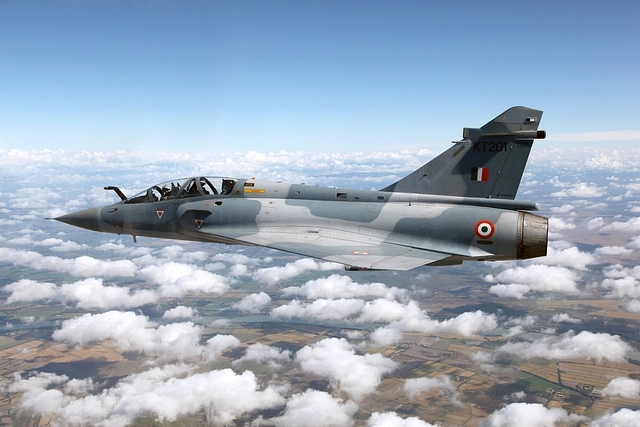
IAF Pilots Who Dropped Bombs In Pakistan’s Balakot Reveal Never Before Known Details Of The Air Strike
The Indian Air Force (IAF), after meticulous planning and using diversionary tactics, carried out an air strike on a Jaish-e-Mohammed (JeM) terror camp in Pakistan’s Balakot and the entire operation was over within 90 seconds, the Hindustan Times has reported.
The mission was planned with air-tight security to ensure there was no leak of information and even family members of the pilots who were part of the predawn operation on 26 February did not know about it, the daily’s report says.
After the Pulwama attack that took the lives of 40 security personnel, the Modi government gave the go-ahead to IAF and the Mirage 2000 fighters destroyed the JeM camp in Pakistan’s Khyber Pakhtunkhwa’s province.
This was the first time in 48 years (1971 India-Pakistan War) that the Indian Air Force had entered Pakistani airspace to carry out strikes to avenge the killing of 40 troopers of the Central Reserve Police Force (CRPF) in Jammu and Kashmir’s Pulwama on 14 February.
One of the Mirage 2000 pilots who carried out the deep strike said, “It was over in 90 seconds; we released the weapon and we turned back and no one, not even my close family knew.” The IAF pilot asked not to be named. This is the first time the pilots involved in the air strike have spoken to the media.
“Next day, when news broke, my wife asked me whether I was part of the attack. I kept quiet and slept off,” one of the pilots was quoted as saying.
The Pakistani Air Force (PAF) was caught napping when the IAF fighters struck Balakot. Before the PAF could scramble its fighters, IAF’s Mirage 2000s were back to safety.
The next day, Pakistan attempted to strike Indian military installations in Jammu and Kashmir, but the IAF managed to chase away the enemy fighters and shot down an F-16 of the PAF involved in the dog fight. In the process, India had lost a MiG-21 over Pakistan Occupied Kashmir and Wing Commander Abhinandan Varthaman, who was flying it, was captured by Pakistan’s ground forces.
During the operation, the IAF used a number diversionary tactic to throw off Pakistan’s air defences. “We flew a lot of Combat Air Patrols (CAP) mostly along Line of Control (LoC),” a pilot said.